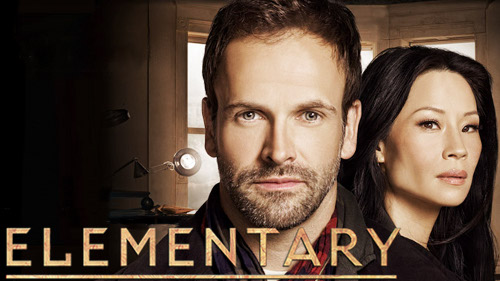“Elementary,” CBS’s take on the modern-day Holmes theme mastered by Britain’s wildly popular “Sherlock,” premiered September 27 as the latest in a series of adaptations of the original stories dating back almost as far as the characters themselves. Currently seven episodes into its 24 episode season, “Elementary,” like all Holmes interpretations before it, has struggled to strike a balance between old and new, innovation and homage. The results, in this case, are middling.

The most important part of any successful page-to-screen adaptation is that it captures the spirit, or feeling, of the original. Of course the inclusion of faithful details and carefully translated characters make an adaptation more enjoyable for fans of the basis, but for me these are secondary to a larger element: the themes and feelings which lie at the heart of the story. And nebulous as that may sound, it’s clear pretty much immediately when a new take on a familiar story falls short. I could write for hours about how much I dislike the way that Elementary’s Sherlock has a couple of specific lines which clash with the sentiments of Arthur Conan Doyle’s original, or the fact that it fails to follow the carefully laid tracks of the source stories, and probably reveal myself for the pedantic Sherlock Holmes nerd that I am. But instead I’ll leave my analysis to this: “Elementary” is not a (really) horrible show. But it utterly fails to capture the magic of both the original stories and other screen adaptations.
Possibly in an attempt to distance itself from its English counterpart, “Elementary” seems to go out of its way to alter the world of the mystery series. Holmes, played by British actor Johnny Lee Miller, is not only removed from the gaslit and cobblestoned nineteenth century, but from the gaslights and cobblestones themselves—”Elementary” is set in contemporary New York, which immediately gives the story a different flavor. Even more noticeably, the role of Watson is assumed by actor Lucy Liu, necessarily altering the relationship between Holmes and, in this case, “Joan” Watson. On principle, these changes are not a problem. When a genre has been adapted as many times as the Holmes stories have, it’s inevitable and even welcome to see a new twist. But “Elementary” fails to justify these alterations with a more developed world or really deepened characters. The changes feel as if they’ve been made only for the sake of being different, and add nothing to two of the most important and interesting aspects of the Holmesian world: its labyrinthine urban setting and the frequently reinterpreted Holmes/Watson dynamic.
These seemingly pointless changes, along with the show’s failure to remain true to the characters’ backstories and the plots of the first mysteries, made me feel as if I was watching a show created for viewers who were interested in the characters and the Sherlock Homes genre, but weren’t die-hard Conan Doyle fans. Where most Sherlock adaptations seem to be based on the book, “Elementary” seems to be based on previous adaptations or vague tropes of the series.
What’s particularly interesting to me about “Elementary” is that it comes on the heels of another modern-day Holmes adaptation which to my mind was infinitely more successful in the ways which I have described. BBC’s Sherlock tackles the same quandary: how to portray a towering literary figure in a modern world; retain the core of the characters and the story while finding something new to add to the world of Holmes. Perhaps it’s simply the volume of cleverly adapted homages that Sherlock works into each episode, or the fact that its character and setting adaptations are more faithful to the stories, but in any case the show is successful in building the world of Homes and giving readers the same mystery that its printed predecessor first achieved.
Even still, Sherlock isn’t, in many ways, faithful to the style of the original stories, which were starker, shorter, and revolved around clever plots and the engine of Holmes’ deductive prowess. Conan Doyle’s stories were for the most part devoid of the witty repartee which we’ve come to expect from the Holmes and Watson team, and less adrenaline-fueled than anything on TV today—and perhaps that’s the point. Modern audiences expect different things out of their entertainment, and it’s a rare adaptation which can evoke the same feelings as an original while holding the attention of a new generation. “Elementary” is not that adaptation.


